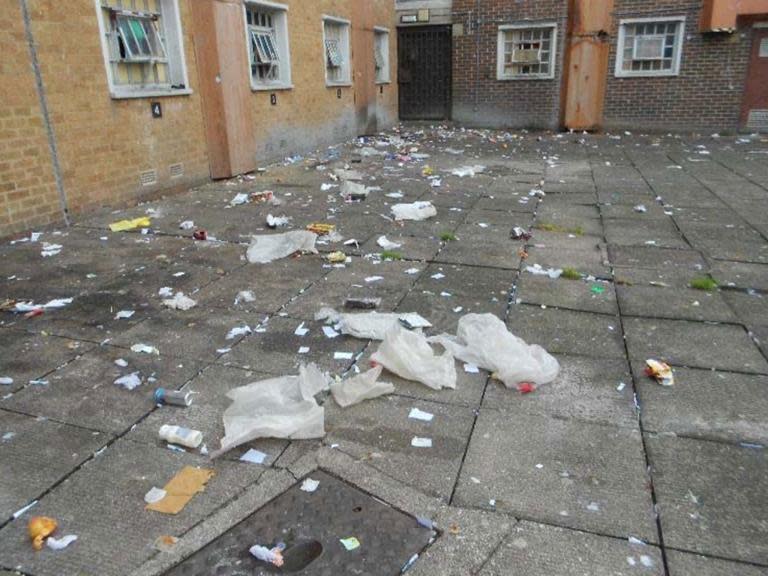Prison inmates too afraid to leave cells due to 'vicious circle of drugs and violence', inspectors find
Prisoners at Warwickshire's HMP Onley are afraid to leave their cells at a jail locked in a “vicious circle of drugs and violence”, inspectors have found.
Staff believe affiliations to London gangs may be driving attacks at the facility where 80 per cent of inmates come from the capital.
The category C jail was found to be “fundamentally unsafe” for the second time by HM Inspectorate of Prisons, following a damning inspection in 2016.
Its latest report revealed that the spread of drugs was so pervasive that one in six inmates had acquired a drug habit since entering the jail.
Almost half of prisoners said it was easy to get hold of drugs at the prison where there had been 200 emergency health calls over former “legal highs” in just three months.
Inspectors said the substances were fuelling bullying, debt and violence, with attacks on staff more than doubling in the past two years.
“Far too many prisoners were self-isolating – refusing to come out of their cells or to go to education, work and training,” the report found. “Anecdotally, staff continued to attribute high levels of violence to gang affiliations. In practice, the causes of violence were poorly understood.”
HMP Onley is the latest prison to spark a safety warning during what campaigners say is a national crisis, worsening reoffending, attack, self-harm and suicides.
The jail is not among 10 jails selected by the for investment by minister Rory Stewart, who has vowed to resign if levels of violence and drug use are not reduced.
The Prison Officers’ Association has claimed resources are being diverted from other struggling jails for the project.
Peter Clarke, HM Chief Inspector of Prisons, said staff doing “far too little was being done” to stop drugs being smuggled into HMP Onley.
“There was a vicious circle where fear, frustration and boredom increased the demand for drugs, which in turn fuelled the violence, and thus completed the circle,” he added. “In order for Onley to break out of this circle, there must obviously be more effective action taken to reduce violence and the availability of drugs. But at the same time, more can be done in other areas.”
He said a lack of safety was “all too obvious” from the moment people enter the prison, with “predatory” inmates allowed to approach and intimidate new arrivals.
Mr Clarke said HMP Onley had not been made safer since similar findings in 2016, and that “inexplicably” only five out of 18 recommendations made at that inspection had been achieved.
Inspectors said that due to chronic staff shortages, staff have run a restricted daily regime for four years - giving inmates less time out of their cells, exercise, education and work.
Rubbish was consistently thrown from cells windows and, the report noted, “there were problems with rats, and recent attempts to control the infestation had left some dying in wall cavities and vents, leaving an intolerable smell in some cells”.
Despite its Midlands location, HMP Onley was designated as a training and resettlement prison from London. Inspectors said inmates from the capital were left feeling “disorientated” and had few visits from friends and family.
Frances Crook, chief executive of the Howard League for Penal Reform, said: “Onley’s story typifies the dislocation and disorder that exists within our troubled prison system. Here is a prison that was itself dislocated, under misguided reforms led by Chris Grayling, now holding men who have been dislocated from their families and often placed far from home. Many are then exposed to drugs and violence.
“Ministers have rightly identified that we must ease pressure on prisons like Onley. Ultimately, reducing the number of prisoners is the key to saving lives, protecting staff and making the public safer.”
Michael Spurr, chief executive of HM Prison Service, said: “Tackling drugs and violence at Onley is our top priority and, while challenging, significant efforts have been made to drive improvement.
“These have included a major recruitment drive, with 30 per cent more officers soon to be in place compared to 2018, along with additional security measures such as mail scanners, while a new drug recovery unit is due to open this spring. As the chief inspector makes clear, despite the difficulties there is good work going on at Onley to help prisoners turn their lives around and reduce the risk of reoffending on release.”



